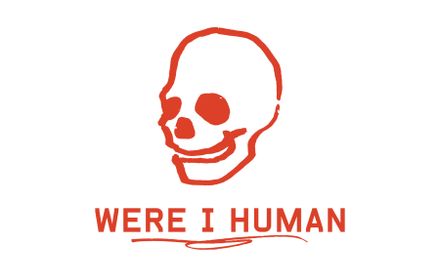
General
Were I Human
5 July 2021

WINNER OF THE 2020 BELL SHAKESPEARE SHORTS FESTIVAL

We speak to Chris Tan whose short film All The School’s A Stage won both the Top Secondary Prize and the Community Spirit Prize in our inaugural Bell Shakespeare Shorts Festival in 2020. Chris shares stories of his experience participating in the Festival and offers his advice for budding young filmmakers.
What drew you to the Bell Shakespeare Shorts Festival?
I was an Extension 2 English student in Year 12 working on a short film for my Major Work and one of my English teachers found this festival and thought it might be beneficial for me. COVID unfortunately prevented me from filming my work, so I thought this festival could be a great replacement to my Major Work in letting me experience the filming process. However, looking at the brief, the thing that drew me in the most was that the film had to be ‘reflective of the student’s school and/or unique community’. I went to a co-educational, selective, day and boarding, agricultural school with a lovely train station next to it, surrounded by talented peers who I would have to say goodbye to soon. I knew that, if I didn’t participate, I would regret and kick myself for the rest of my life.
What was the inspiration for your film?
All The School’s A Stage was inspired by my desire to showcase my unique high school community, but also tap into that lingering fear that my peers and myself felt about graduating soon. My initial idea was a Year 12 student suddenly seeing all things Shakespearean, ending up in a counsellor’s office grappling with his fear of the future but eventually learning that ‘all the world’s a stage’. I loved the message that we have nothing to fear because we are the protagonists of our own stories, but I felt the story was overblown and I couldn’t source that amount of Elizabethan-like clothing required. It was only when I made a link between the Seven Ages of Man and the six grades of high school, with the seventh being that fearful future, that the film felt clearer and easier to make – the only clothing the actors would have needed were their school uniforms.
What was the writing and filming process like?
An absolute rollercoaster ride! There were many high moments where I felt so proud of the actors and excited about the story’s potential, but also low moments where I was exhausted and felt like there were constantly problems arising when filming. Because all the actors were in Year 12, the biggest problem was finding days where a handful of them were available and then constantly thinking about how that could affect the story, which is why certain actors came and went throughout the film. However, that feeling of pride when you play back the footage after a shoot or watch your creative vision come together in the editing stage makes everything worth it.
What did the Bell Shakespeare Shorts Festival teach you?
This festival gave me my first ever experience in making a short film. It taught me to always trust your instincts and stand by your creative vision no matter how daring or weird it seems. It taught me to take risks and be confident with them. And it taught me to always press the save button as regularly as possible – I remember losing two hours of work when my editing software crashed!
What are your top three tips on the festival for other students or teachers?
Last year you completed Year 12. What are you up to now?
I am currently studying a bachelor course at the Australian Film Television and Radio School (AFTRS), hoping to pursue a career in film. This short film was actually part of my application for AFTRS so I still feel really lucky and grateful for this festival!